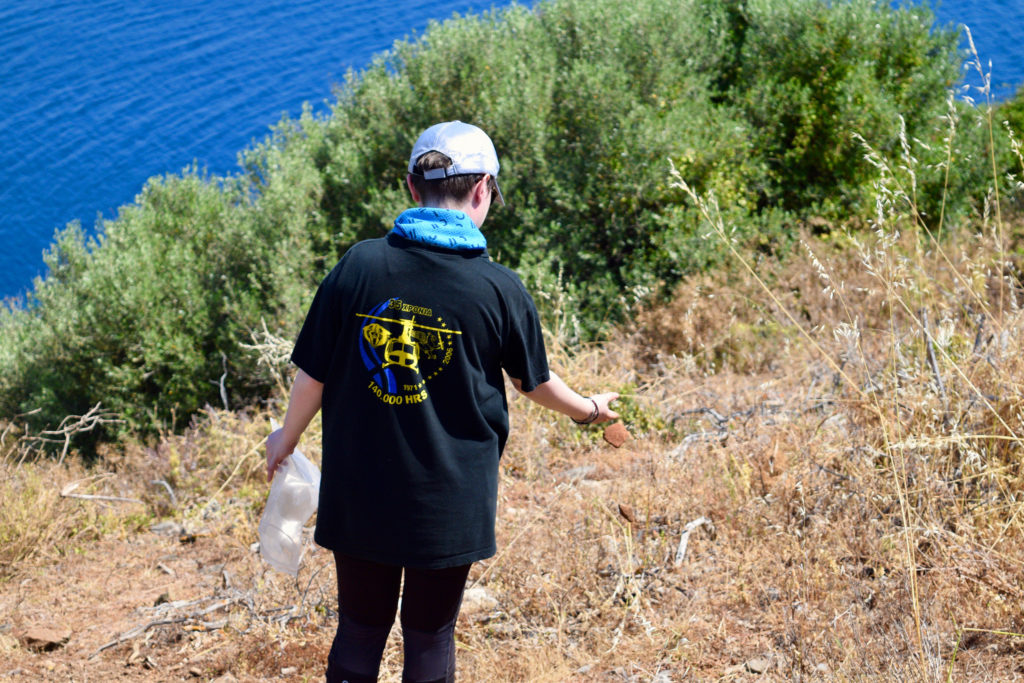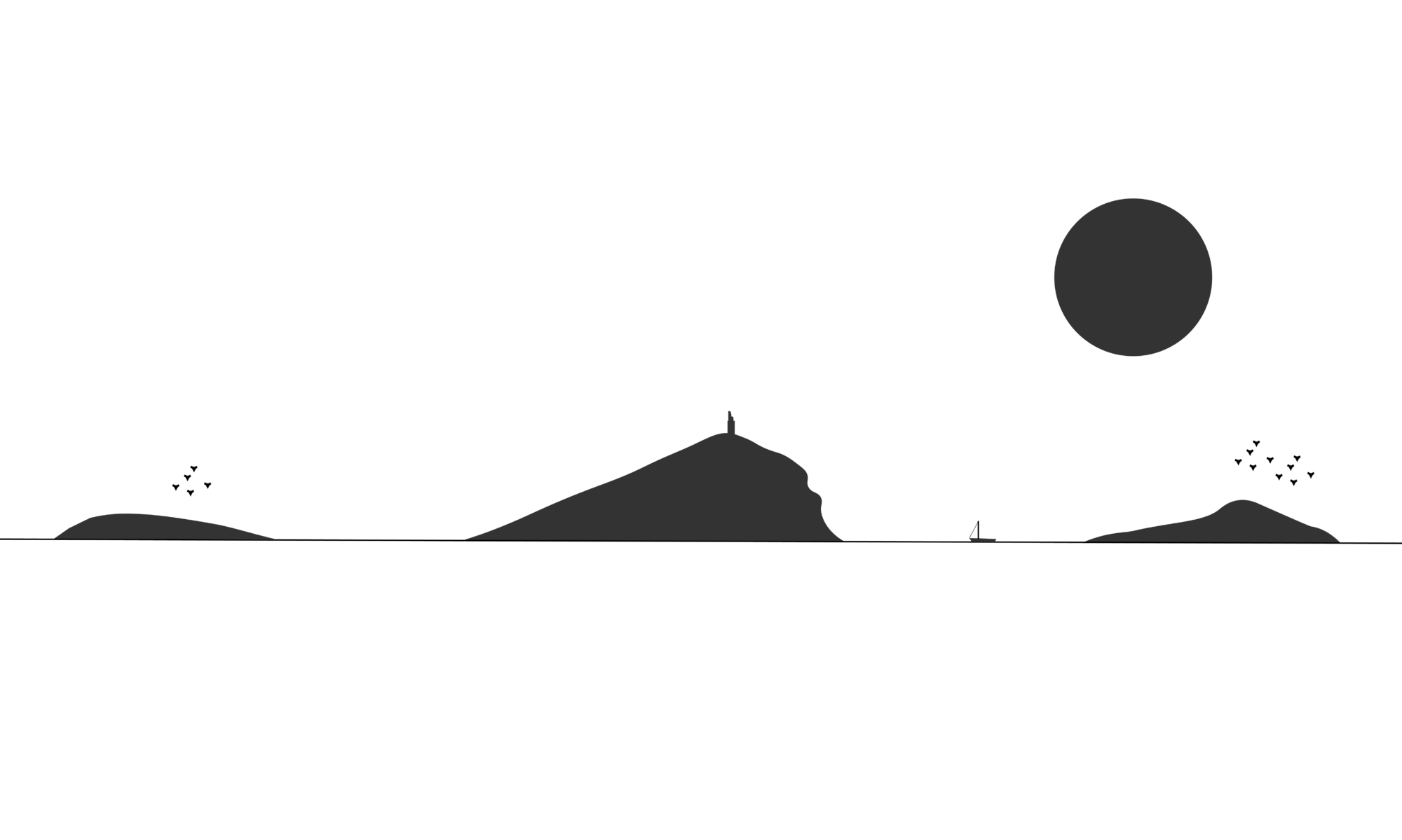The very limited BEARS 2020 study season (population: 3) in the Vravrona Museum has been full steam ahead over the past several weeks, but comes to a close tomorrow. A brief report on our activities and new insights will appear here as soon as…I have put out the fires of the upcoming start of the semester and have time to sit down and write it! Meanwhile, below is the ninth in our series of BEARS team member interviews, this time featuring known blogger of archaeological profundities and BEARS 2019 team member Kat Apokatanidis. Kat is a PhD student in Classics at the University of Toronto who recently switched from Philology to the Mediterranean archaeology/ancient history track in the department. As a result, I am now lucky to have her under my supervision! Kat was a first time fieldworker last summer, but took to archaeology like an octopodi to beach rock, and demonstrated her keen eye for spotting vegetation-obscured artifacts (a surveyor’s most important tool!) throughout the season. We recently chatted online from separate ends of Greece about all things ancient and especially BEARS related – keep an eye out for a brutally honest Greek’s eye view of our modest seaside project home of Porto Rafti.
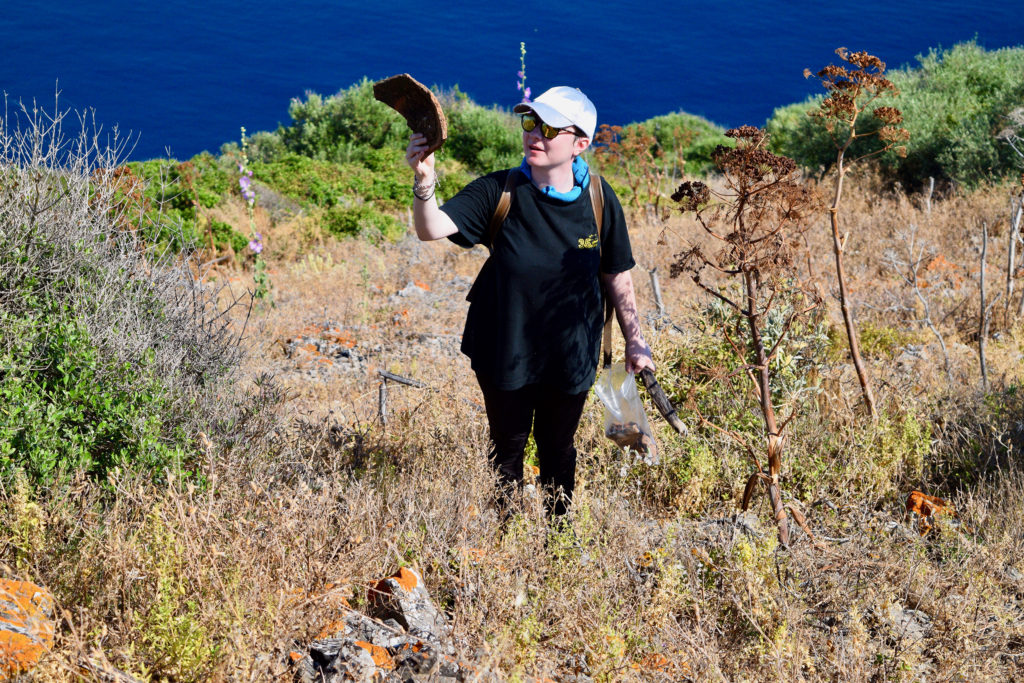
SCM: You are currently a PhD student in the Classics department at the University of Toronto. Can you tell me what got you interested in Classics and why you decided to come to Toronto for a PhD in the subject?
KA: We are taught Classical texts in junior high school and high school in Greece, so we always have this connection to the texts from very early on. Ancient Greek is compulsory from Junior High school. Usually we use a text, as well as a textbook with grammar. So we start very early on learning ancient Greek literature, which is considered a crucial part of the upbringing of Greek children. So from a young age we get a familiarity with those texts. They’ve always seemed really interesting to me.
To be honest I guess the reason that I got into philology in the beginning was because of life circumstances really. I was not good at math – or maths, rather! I can’t even say it correctly…and so that really limited my options for university. In Greece we have Panhellenic exams, which are basically entrance exams, and everyone takes them, because universities in Greece are public institutions. Everyone has the chance to get in, but you have to pass these exams with a specific grade, depending on which subject you want to pursue for your BA. So you have to know really early on what you want to do in your life! You go through a 2-year intensive training into the specific material for the exams and then, hopefully, you get into what you want to do. Fortunately, in my specific experience the exam was very closely tied to what I wanted to do. People who want to go to law school in Greece, e.g., go through the same material – Greek and Latin – and then never do it again! So maybe it’s not ideal as a system. But for me it was great. I did Aristotle and Plato and stuff like that in high school before even getting into philology.
Then I got into philology and I loved Classics, partly because it was the hardest and most challenging of the courses. In Greece there are 3 specializations, where you do linguistics, medieval/modern Greek, and then the ancient languages. You do 2 years of everything and then you specialize in one of those three. I was choosing between linguistics and Classical philology. I chose ancient Greek because I wanted to become a Homerist.
After that I just never got it out of my system. It depends on if you like what you study for your BA, but if you like it, you realize that you always want to learn more, and there is basically an infinite amount of material to learn. So I kept on and did a first Master’s in Durham – I wanted to do epic poetry at the time – then did another Master’s degree at Waterloo. I just loved the texts so much, I wanted to keep going with school and I didn’t want to let it go. I had the idea that I wanted to do Academia…so I guess that’s how I ended up in Classics and doing a PhD. I love learning! I’m a nerd!
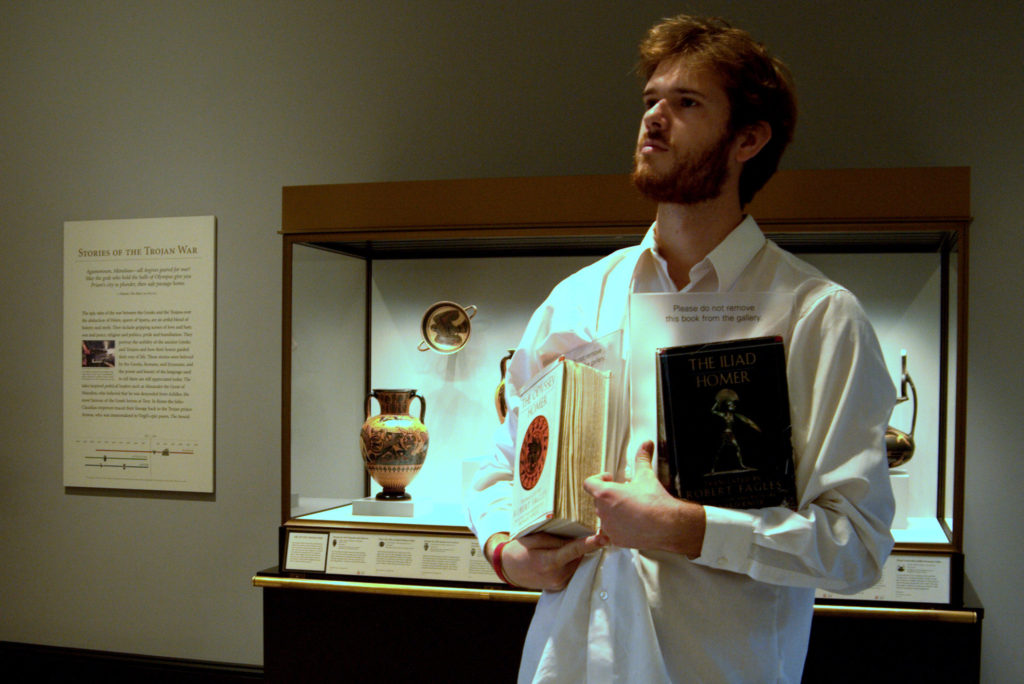
SCM: I think that’s a good point, that at some point you realize that no matter how many degrees you get, you will never have learned everything! And if you like learning you could just keep on getting degrees! Barring certain practical concerns, of course. What about Toronto – why did you come here for the PhD.
KA: Well, I’m a Canadian citizen, so Toronto was always at the top of my list. It’s in Canada, and I have extended family in Toronto, so I wouldn’t be completely alone on a different continent from my family. So it was a less scary option than something in the States or wherever, coming from Greece. It’s also a really big program, so it has a lot of specializations, which is good because you can keep your options open.
I went into philology thinking I wanted to be a Homerist, as I said, but it’s hard to find something new or original to do for Homer! So that’s why I thought that going into a larger program would give me a chance to figure out what exactly I wanted to do, since I suspected it would be challenging to identify a good, new topic on Homer.
But then I ended up realizing that I really liked archaeology, so I’ve switched into a new track now – and I think it makes sense to me, because I had always approached ancient Greece from an anthropological view rather than a literary one. I’ve always had issues with finding something to say. Even though I love the texts, I always found it challenging to identify an original argument about a literary text. So for me moving into archaeology is exciting, because everything is about the cultural context and I think it’s a bit easier to find new ways to contribute.
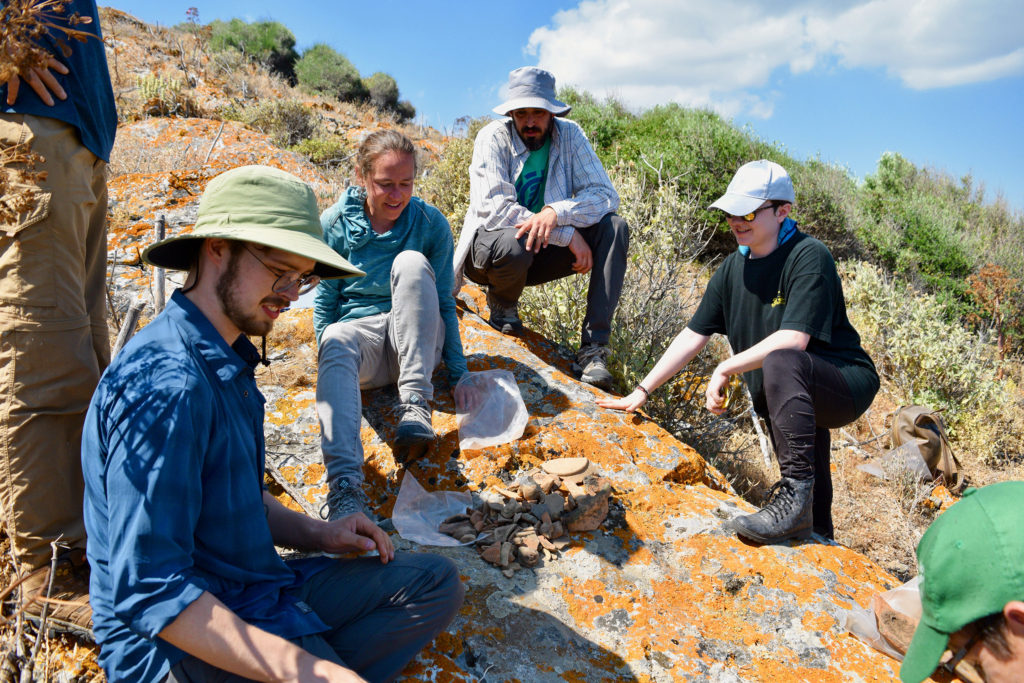
SCM: Right, so officially you have now come over to the dark side – switching from philology to history/archaeology in terms of the streams in the program. Where are you exactly in progressing through the PhD and what kind of research are you thinking of pursuing?
KA: I am entering my 3rd year in the PhD program, and I switched streams last year into the MACS specialization. The reason was partly my experience working in the field on BEARS, but I also realized that this stream gives me an opportunity to do something that I really wanted to investigate but felt I couldn’t before – that is the bigger cultural and anthropological context of ancient texts. I’m now starting a research project on the Orphic gold tablets, trying to position these texts as material objects rather than just philological objects, which is how they have been approached before. I first encountered the tablets in a course on Greek Epigraphy during my BA. I thought they were really cool already then, and that they were quite unlike most other texts – a more direct connection to the divine, especially, given the mortuary context. While the texts have been translated, they haven’t really been treated that thoroughly archaeologically in their cultural context, so I thought it would be interesting to give that a try.
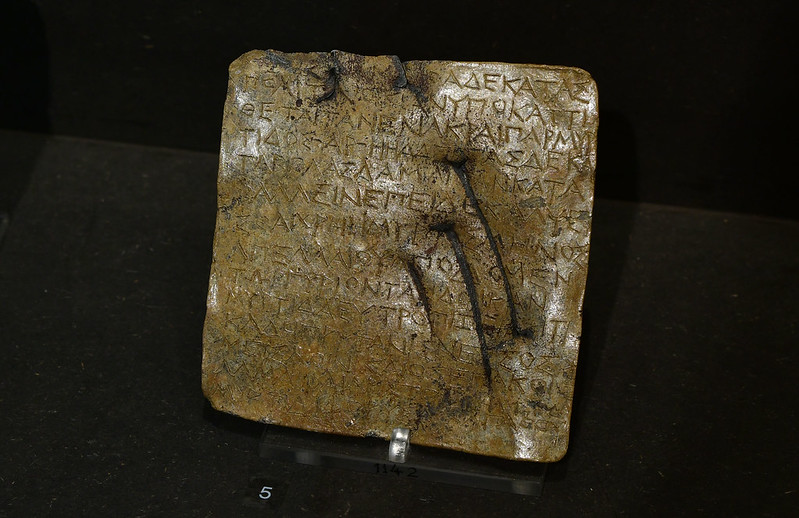
SCM: Super cool – I think it is a promising angle. Generally, there are lots of fresh, innovative things that can done with objects, and although there has been a lot of archaeological research, I think that ground is at least somewhat less-trodden than the textual evidence. Anyway, I am biased, but I support this decision to switch specializations!
A question I often ask people is about their favorite text or object from the ancient world. But now I already know that you love Homer, and that this is a longstanding passion – what is it about Homer that you like so much?
KA: Honestly my choice as a favorite wouldn’t necessarily be Homer as we have him, but one of the cyclical epics that we don’t have! And also, the Orphic theogonic text to which the Derveni papyrus refers to, but, in its entirety.
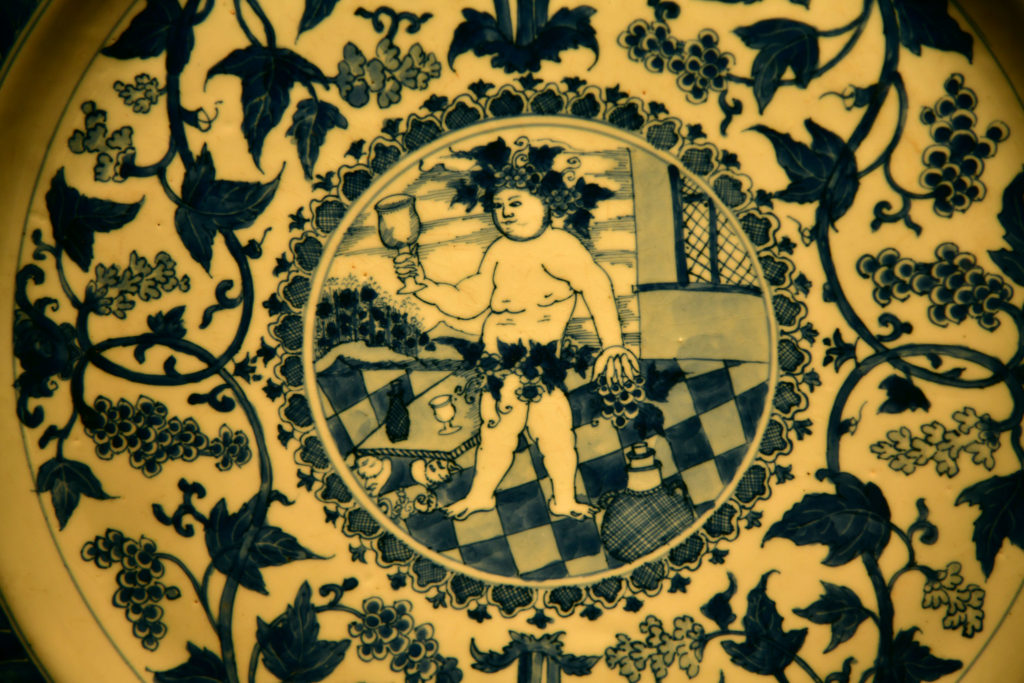
SCM: Okay, okay! So what is it about early epic that gets you?
KA: Apart from the fact that the narratives are so original and gripping. I was watching a tv show on Greek television awhile back, and I remember that a point was made that if we were to lose Homer, there would literally be nothing like it ever produced again! I thought that was a good point – these epics have an odd form because of the oral nature of the composition and original circulation. It’s also amazing that they can really inspire anyone even to this day. Every time I read Homer I get so many original ideas and thoughts that can be explored creatively. Aside from their merit from a literary point of view or the cultural insights we get from them, I always think that these early Greek texts have an amazing quality of fertile ground for personal inspiration. They make me think about things differently. Only Homer has done that for me, and I read a lot. Then I wonder about those stories that inspired the Homeric epics – the lost nostoi and the other stories! Maybe they were even more inspiring…
SCM: Or maybe they were terrible and super lame! We’ll never know!
KA: That is what people have said…but I bet not.
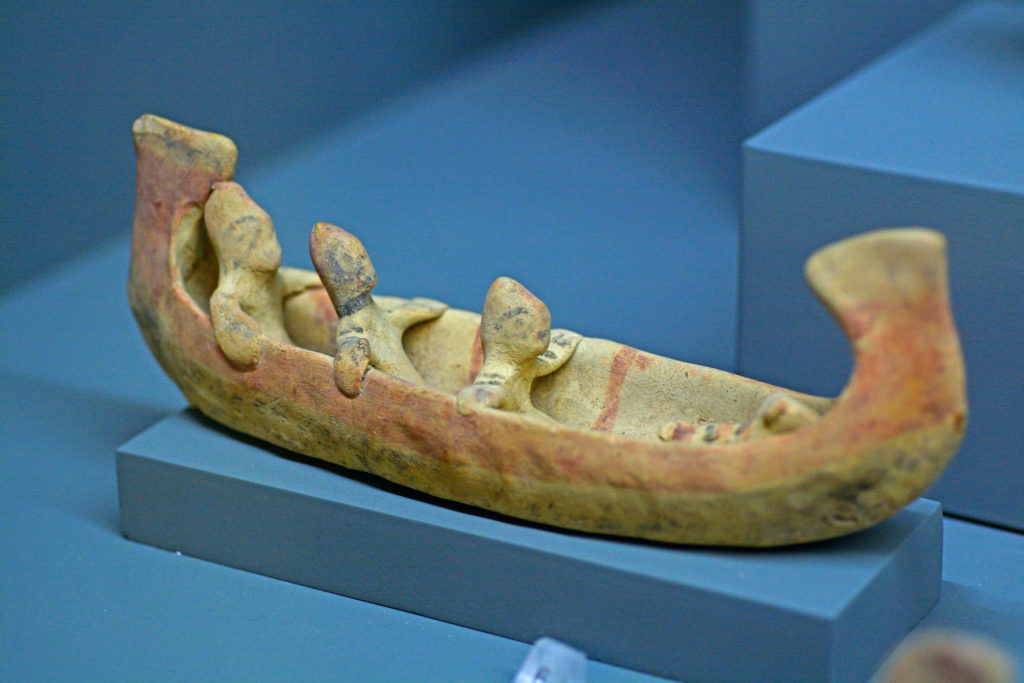
SCM: It is definitely a great point that Homer is amazingly poignant even so many thousands of years later. I never cry in life, really, but I always get really sad when I read the Iliad. Maybe close to crying sometimes. But don’t tell anyone I said that. I have a reputation to maintain! Anyway, I definitely never feel that way when I read…Livy or Virgil or whatever. Maybe there is someone out there that cries at Livy.
Now, returning to the topic of archeology, last summer you came out for BEARS, and this was your first time working on an archaeological field project. You already wrote some great posts about BEARS on the blog, but I wanted to see if you had any other general impressions or comments about work on the project to add to those profound reflections?
KA: Well, BEARS was, in one word, amazing. It was so, so different from what I am used to. I had no idea how much I wanted to do something like that, until I did it. I knew I always wanted to do something like what archaeologists did, but I did not really know what that meant. It’s hard to explain to someone who hasn’t done it what the experience is like. It is really awe-inspiring to uncover or find these things from so long ago, or even to visit an archaeological site. But really being an archaeologist is an experience beyond this kind of awe-inspiring idea, that everyone gets. Doing BEARS was very satisfying to me because in archaeology you go out into the world and really DO something, which was not the same as my experience in philology. You really see a place and try to understand the real lived experiences of actual people and societies. Then you take the data and build an idea around that information. I did not understand the nature of that process until working in the field. Even though I was really new to this kind of work, and I still have a lot of catching up to do, I just really wanted to be a part of this process and to think of things in a cultural context instead of just a text as its own special thing, independent of the people that surrounded it.
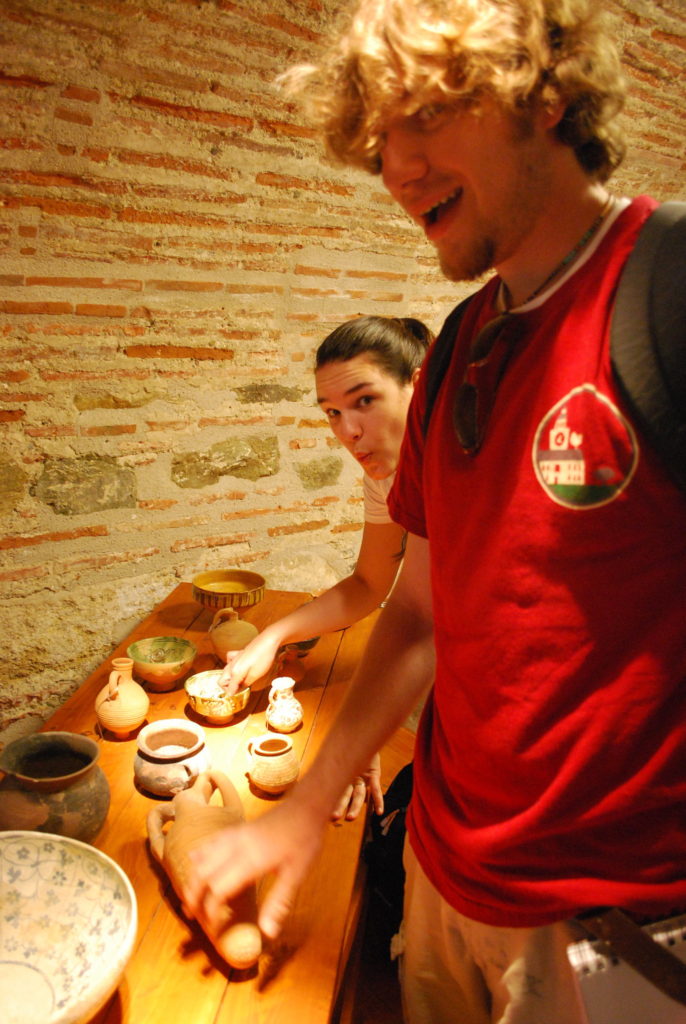
SCM: Interesting, yeah, I guess I’ve never been even close to thinking like or being a real philologist, so I’ve never really thought of it from that perspective.
KA: I don’t mean to throw shade on philology!
SCM: I mean, I think that everyone has their own deal – and it’s good that there are lots of people that like to do all kinds of different scholarship.
KA: Yeah, I find I really like having the more hands on work.
SCM: Then I think you will definitely get more of that in archaeology. We put our hands on a lot of stuff! To put it in a very concrete way. Speaking of concrete, I often ask students about their experience of living in Greece, but of course you have lived most of your whole life in Greece, so that would be a silly question to ask! How about Porto Rafti – give me your honest impressions of our BEARS home town!
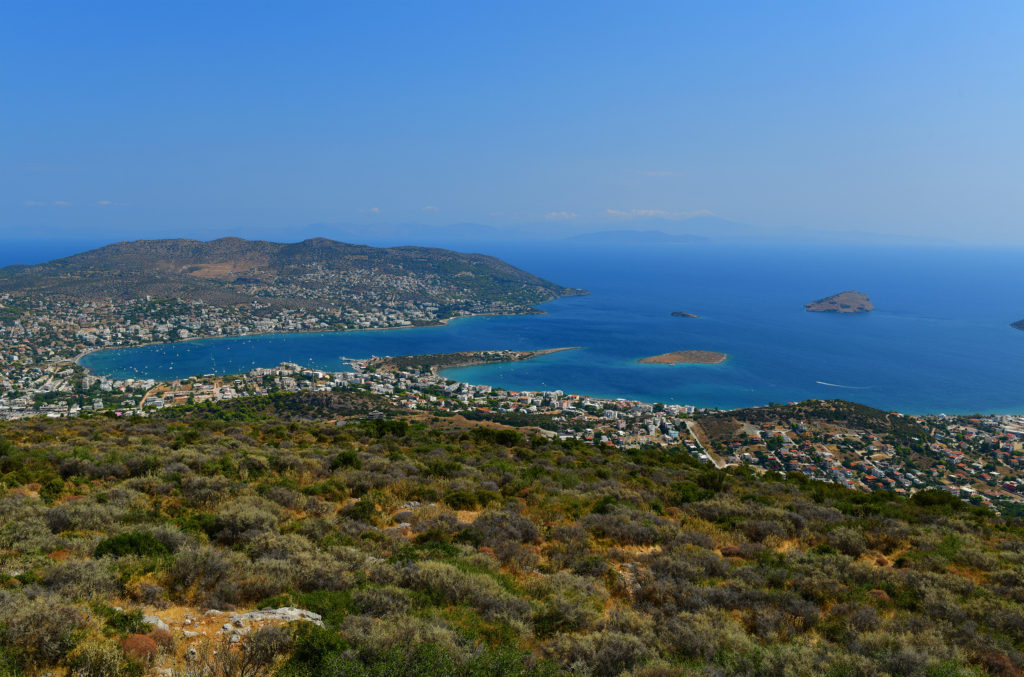
KA: Okay, you asked for a Greek point of view, and I am going to give it to you!
SCM: Give it to me straight!
KA: I mean, the whole town is very totally illegal! The way it’s built…no, no no! There is no structure, people just built whatever they wanted wherever they wanted. These were decisions made back when Greece was governed by a dictatorship and we are still paying the price. But, I mean, other than that, it is a “charming seaside town”….but I mean…the driving! Why? Athenians, man, I just can’t with the way they drive in Porto Rafti. Again, just doing whatever they want. What rules? But that’s kind of home for me, so I’m not really complaining too much.
SCM: I have seen at least 3 collisions in front of Giorgos’ house just this summer in Porto Rafti! But I kind of love the chaos about Porto Rafti. Somehow it is refreshing compared to all of the rule-based rule-following Canadian lifestyle that is characteristic of life the rest of the year. I like to do whatever I want whenever I want, so I guess maybe it’s a personal thing.
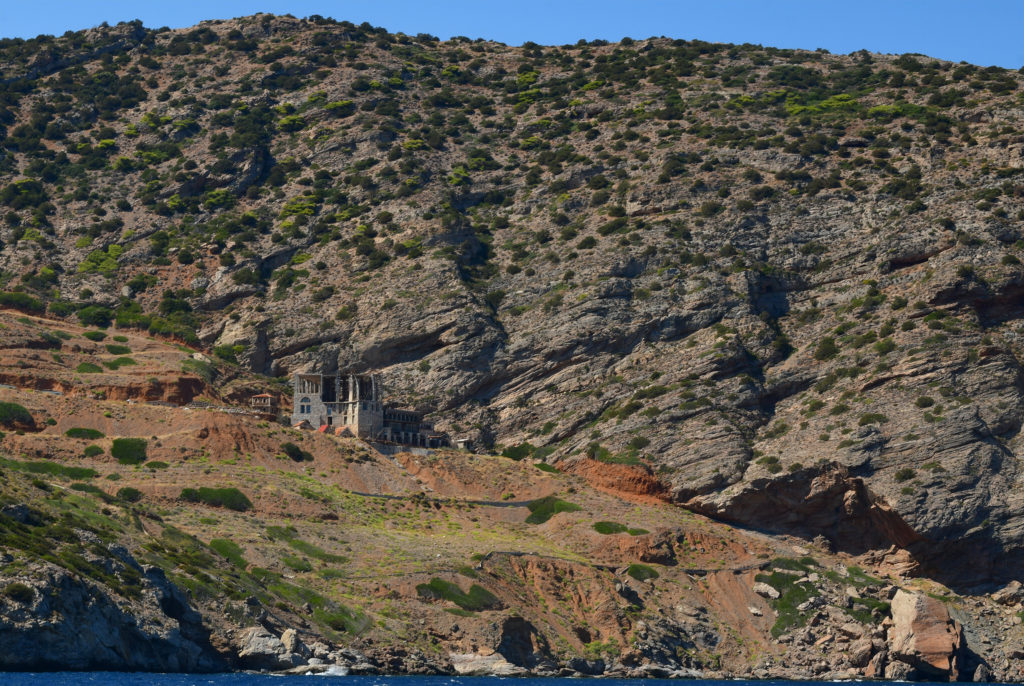
KA: There is a certain harmony in it.
SCM: It reminds me of when I was much younger and rented a car in Naples. And the car rental guys told me absolutely under no circumstances should I stop at a red light or a stop sign, because nobody would expect it, and you would cause a bunch of accidents. So the rule was that you had to not follow the rules! I was pretty terrified by this advice – I was quite young then and hadn’t driven much in big European cities – but, you know, there was a harmony in the unruliness that somehow worked out.
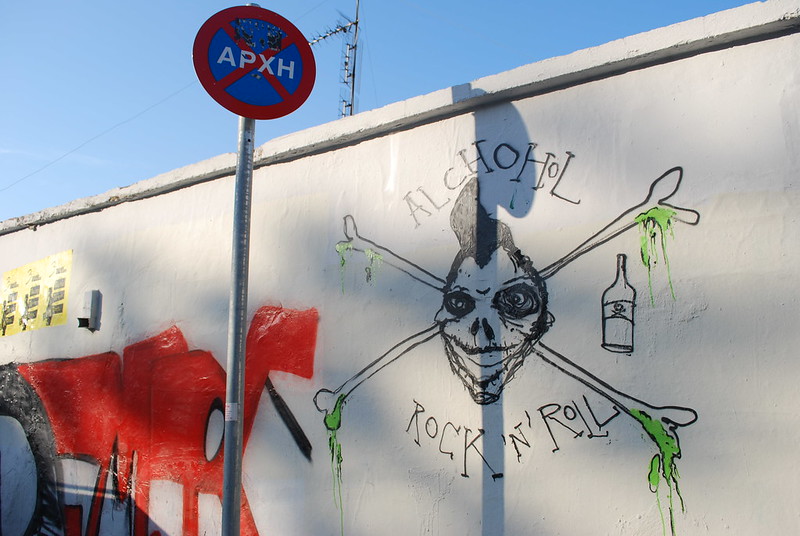
KA: You just have to hone your reflexes! I am a much better driver because of my experiences driving in Porto Rafti. But for me it was just good to be home all summer. Obviously, Porto Rafti is not my home, but still, all of Greece kind of is your home when you are Greek. For Greeks, at least the way I see it, wherever they are doesn’t matter too much, as long as we are in Greece. We are sentimental about our country.
SCM: I would be, too. It is the best place. What do you miss the most about Greece when you are in Toronto?
KA: The sun! Not a hard question – definitely the sun. Toronto is not the best when it comes to sunlight. And just the climate in general, and the mountains.
SCM: I hear that. Toronto is very, very not mountainous.
KA: While Canada does have mountains, Toronto does not have them. I miss looking out at the landscape, and seeing something: a body of water, or topography. Even though Toronto has the lake, nobody can afford those views. In Greece, almost everyone has a view of something nice. In other places it’s like some kind of commodity. Here we are poor, but we get to see the mountains every day.
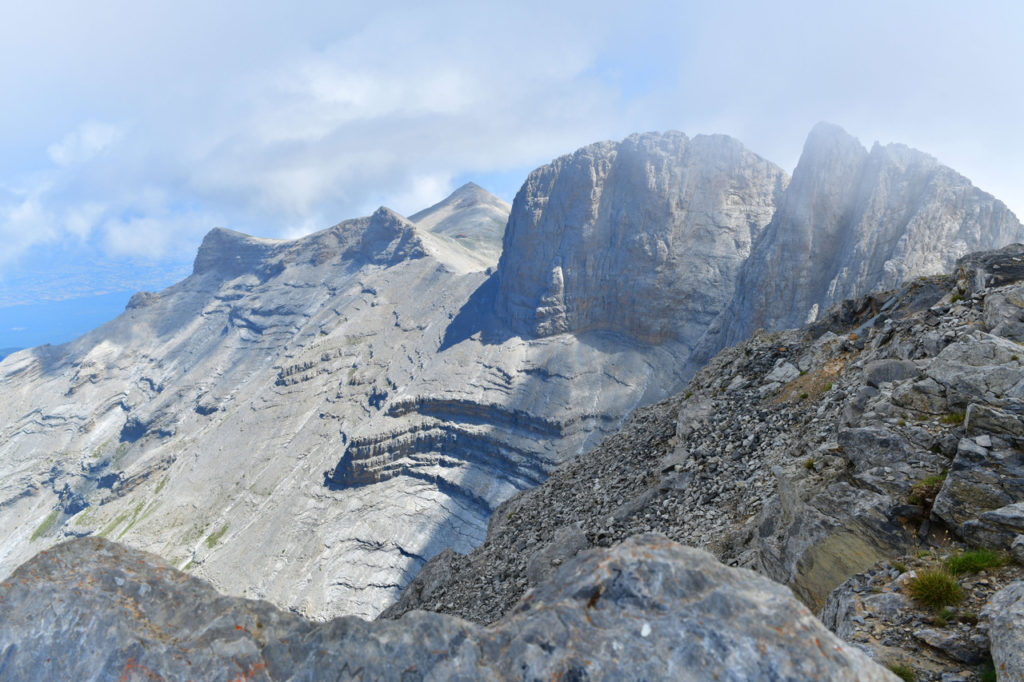
SCM: That is a great point. You have to be pretty rich in Toronto to see anything nice from your window. Otherwise you just look at trash and sewer drains and concrete. But Greece is democracy for views! I never thought of it this way.
Well, unfortunately, the team is not experiencing the many joys and pains of life in glamorous Porto Rafti this summer. What are you looking forward to the most of getting back out into fieldwork in 2021, presuming that we can?
KA: For me the best part of the fieldwork is the anticipation and the process of finding actual things. It’s very satisfying. It’s hard to describe the feeling. I also enjoy the way that all of the hard parts – climbing and being hot – fade away in your memory after that day: you only remember the excitement and the amazing views – which we had from everywhere we worked – and how great the experience is. I think I miss everything about working there, and that being ‘the work’. I have had some terrible jobs in my life, and when this is your ‘job’ for the day, to go into this amazing landscape and look for ancient stuff, I mean, give me a break. I miss that feeling.
SCM: Well said! Let’s leave it at that – thanks for your time and enjoy the tiny remainder of the summer!
